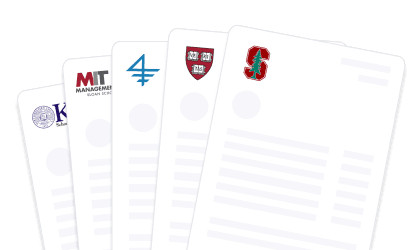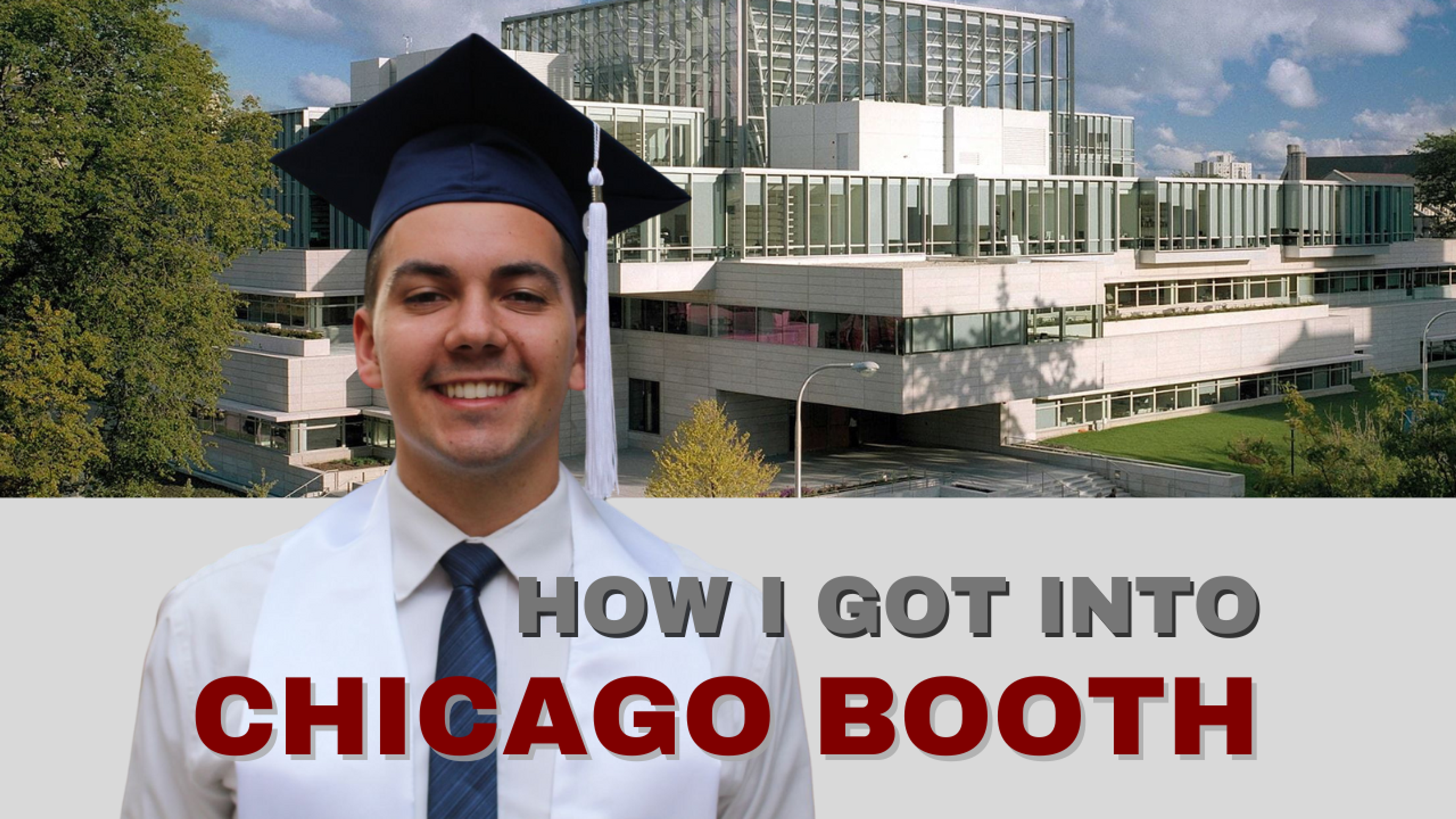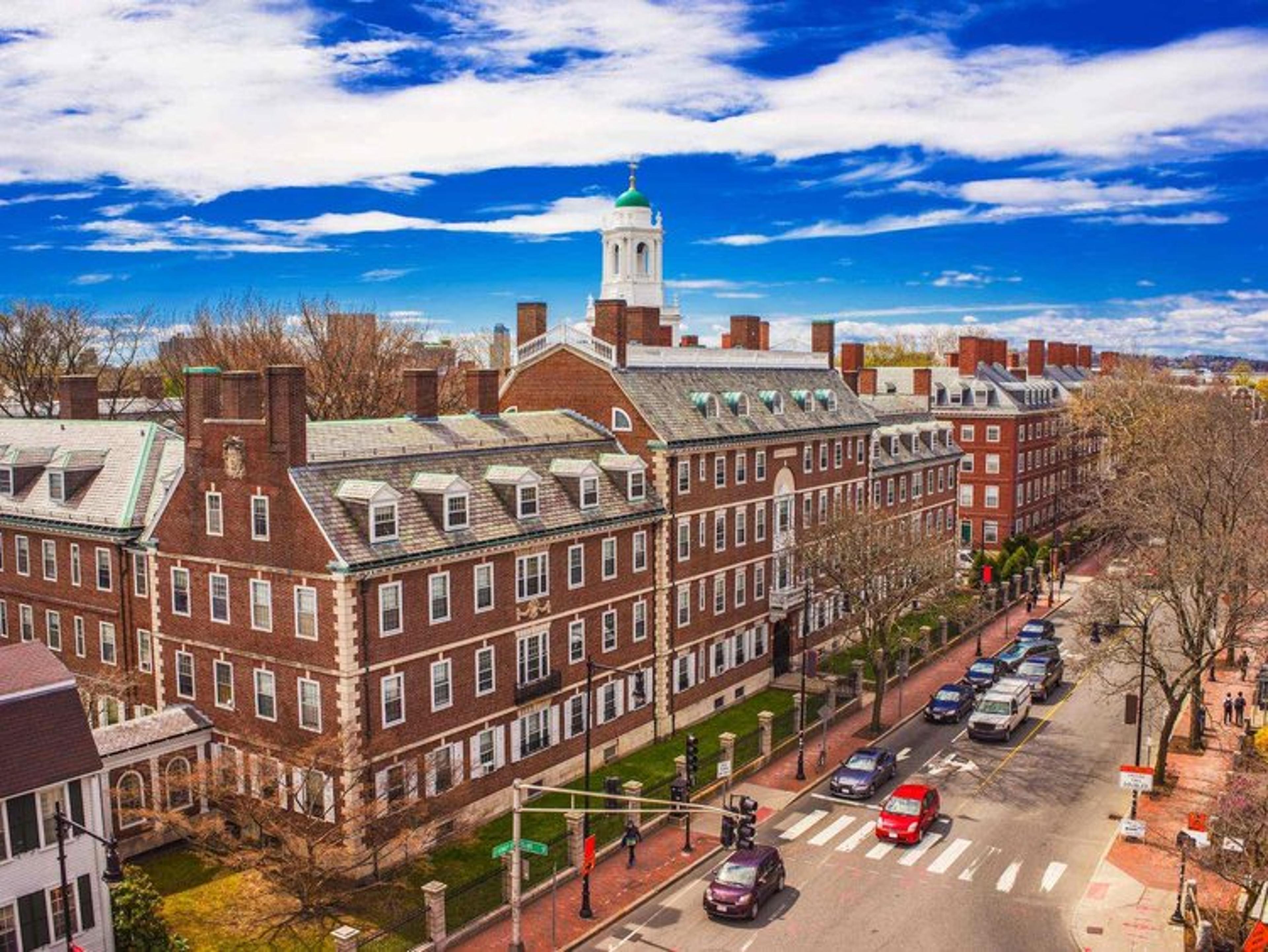HBS 2+2 Deferred MBA: Deadlines, Acceptance Rate, & How to Get In (2026)
Learn about HBS 2+2 deferred MBA deadlines, acceptance rate, eligibility, and application strategies to strengthen your 2026 admission chances.

By Claire R.
GSB & M7 Expert | Knight-Hennessy | Ex-Bain/Nike | 100+ M7 Admits
Posted October 7, 2025
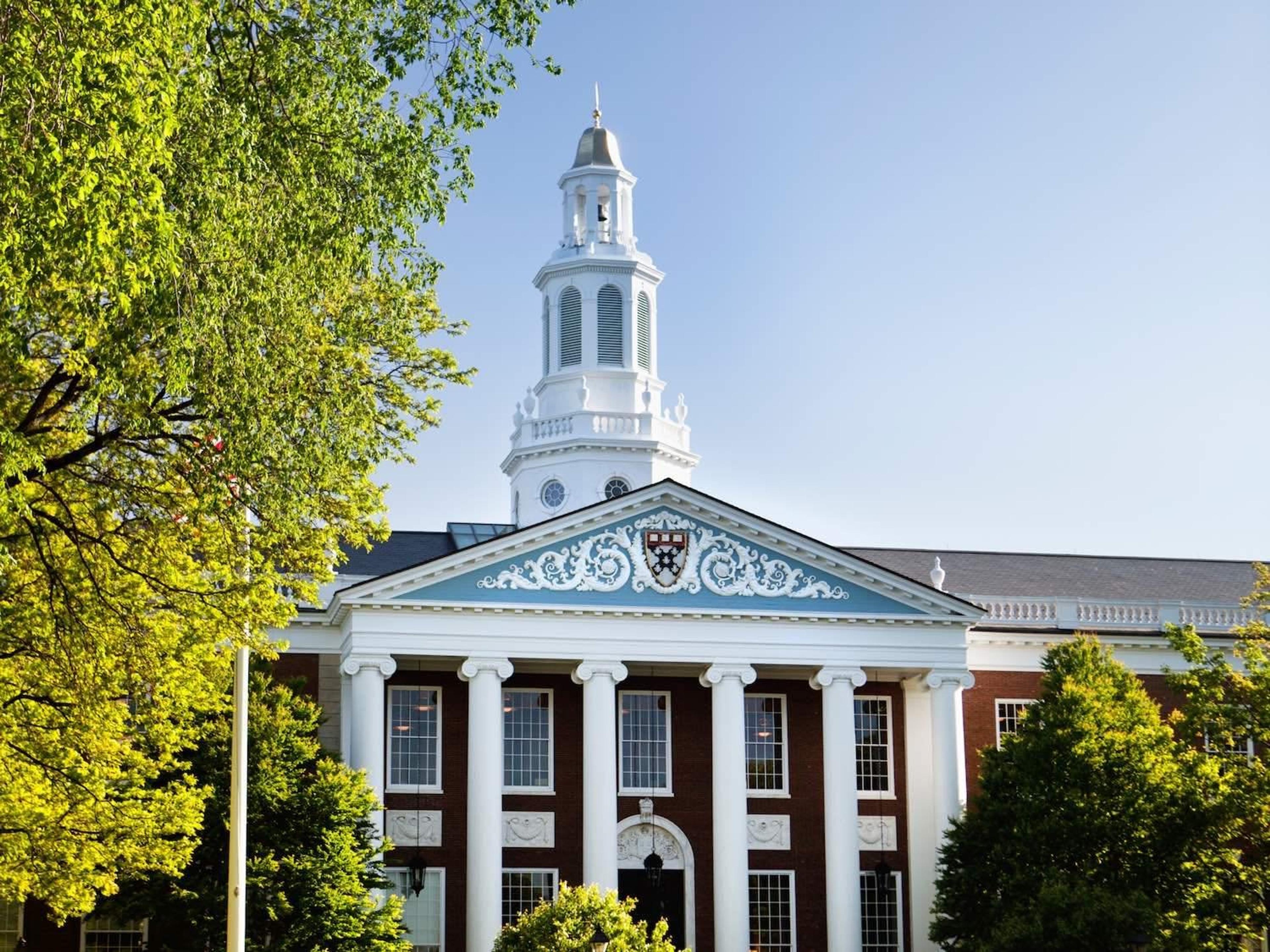
Join a free event
Learn from top coaches and industry experts in live, interactive sessions you can join for free.
Table of Contents
Why wait several years to apply for the MBA program when you can secure your spot at Harvard Business School today? With the HBS 2+2 program, you can apply now, gain valuable work experience for two to four years, and start your MBA journey with a stronger, more unique perspective.
This article will cover the application deadlines, acceptance rates, admissions process, eligibility requirements, and strategies to help you build a strong application for 2026.
What Is the HBS 2+2 Deferred MBA Program?
The HBS 2+2 is Harvard’s deferred admissions program. You apply while still in school, during your senior year of college, or in the final year of a master’s degree. If accepted, you work for two to four years during a deferral period before entering the MBA program. The program is designed to create a committed student pool made up of innovative thinkers from different academic and professional backgrounds. Harvard’s admissions committee looks for candidates with strong analytical skills and demonstrated leadership who can enrich the MBA classroom.
Unlike the regular MBA program, where applicants usually have several years of experience, the 2+2 program targets college seniors, graduate students, and first-generation college graduates. It also attracts applicants from underrepresented industries such as the nonprofit sector, medical school functions, law school, and scientific research.
While Harvard was not the first business school to launch this type of program, Yale introduced one in 2001, and HBS 2+2 quickly became one of the largest and most competitive deferred MBA options. Other top business schools like Stanford GSB, Wharton MBA, and Columbia Business School also offer deferred MBA programs, but HBS remains the most selective and well-known.
Read: HBS 2+2 Deferred MBA Essay Prompts & Tips
History of HBS 2+2
The 2+2 program began in 2008 when Harvard created a new way to connect with outstanding undergraduate students and secure their commitment early. The idea was to encourage applicants from varied academic backgrounds, including those pursuing careers in fields not traditionally linked to business, to see an MBA as part of their future. Since its inception, the program has expanded to include master's and PhD candidates in their final year.
Who Can Apply? MBA Eligibility and Requirements
Eligibility Criteria
If you’re in your final year of study, you’re eligible to apply for the current application cycle. This includes students completing a joint degree program that combines a bachelor’s and a master’s, as well as those enrolled in a master’s or PhD program. You must not have worked full-time to be considered, as the 2+2 program is designed to offer an alternative path compared to the traditional MBA route. If you’re already working full-time, you’ll need to apply through the standard MBA admissions process. International applicants attending college outside the U.S. are also encouraged to apply.
Here’s a more detailed look at the eligibility criteria for different programs:
Bachelor’s Degree Programs
If you're completing your undergraduate degree, you can apply in your final year.
Joint Bachelor's/Master’s Degree Programs
Students in joint bachelor's/master’s degree programs are also eligible to apply.
Master’s Degree Programs
If you’re pursuing a master’s degree, you’re eligible to apply as long as you haven’t worked full-time (except for internships or co-ops). To qualify for the 2+2 program, you should have moved directly from undergraduate studies to graduate school.
PhD Programs, Law School & Medical School
If you're enrolled in a PhD program, law school, or medical school, you're not eligible for the 2+2 program. In these cases, you should apply through the regular admissions process instead.
Note: To meet the eligibility criteria, you need to graduate between October 1, 2025, and September 30, 2026.
What the Admissions Committee Looks For
Harvard Business School’s mission is to educate leaders who can make a real difference in the world. In each MBA class, they create a dynamic learning environment that reflects the diversity and complexity of the global economy. They promise to bring together over 900 students, each with different experiences and perspectives, so that everyone, including you, can learn from each other and grow together. The MBA admissions board also values more than strong grades or test scores. Additionally, the admissions committee looks for:
- Evidence of demonstrated leadership during undergraduate studies or internships.
- Strong analytical skills and intellectual curiosity.
- Applicants from lower socio-economic backgrounds
- Candidates with specialized knowledge or experience in areas like software development, scientific research, or other technically demanding roles.
Application Deadlines & Process (2026 Cycle)
The HBS 2+2 program has a single annual deadline. The 2026 application will open in December 2025, with a submission deadline of April 22, 2026. All applications and recommendations must be submitted online. Those are not reviewed on a rolling basis, meaning they won’t be considered until the deadline has passed.
Applicants to the program benefit from a reduced application fee of $100 USD. If paying the application fee would create a financial burden, they are invited to request a need-based fee waiver. Active-duty military applicants are not required to pay the application fee. Information on how to request both the military and need-based application fee waivers can be found in the 2+2 application.
The application process is similar to the regular MBA program, though the applicant pool consists of college students, graduate students, and deferred applicants. You will complete the online MBA application, pay the application fee (with waivers available for students with a financial burden), and submit a resume, essays, and recommendations. Transcripts from your undergraduate degree or graduate school are required, along with standardized test scores (GMAT or GRE). If you are an international applicant, you may also need TOEFL scores. Harvard notes that there is no preference between the GMAT and GRE.
Strong recommendations matter here, and at least one should come from a direct supervisor or professor who has worked closely with you.
HBS 2+2 Acceptance Rate & Class Profile
The HBS 2+2 program is extremely competitive and has a lower admit rate than the regular MBA applicant pool. Recent years show acceptance rates estimated at around 8–10%, compared to 12–14% for the full-time MBA program.
The profile of their class evolves each year, shaped by the diverse individuals who choose to apply and enroll at HBS. Below is the breakdown of the current class profile, highlighting the key characteristics and backgrounds that make up this unique and dynamic group of students.
Class Profile
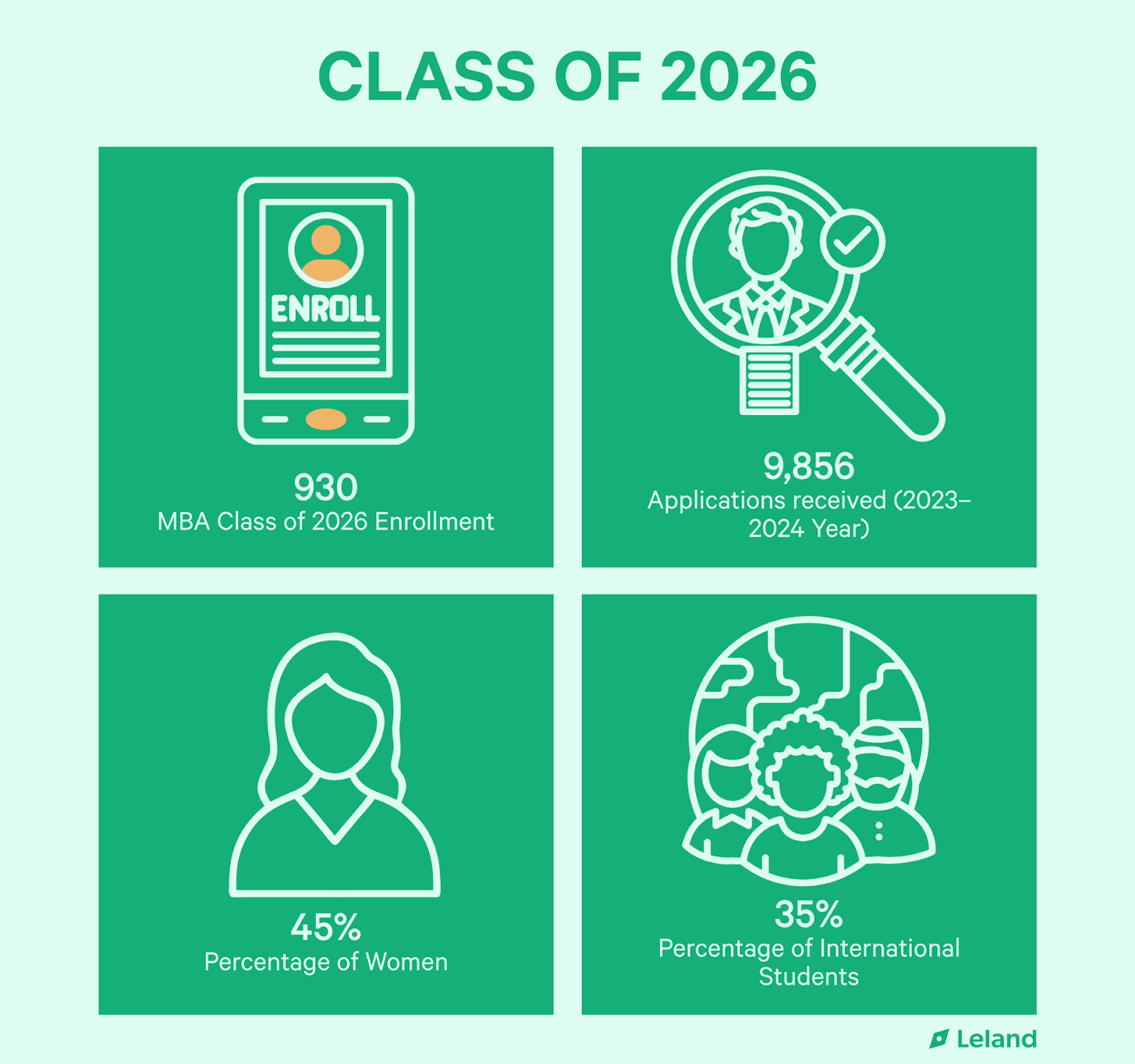
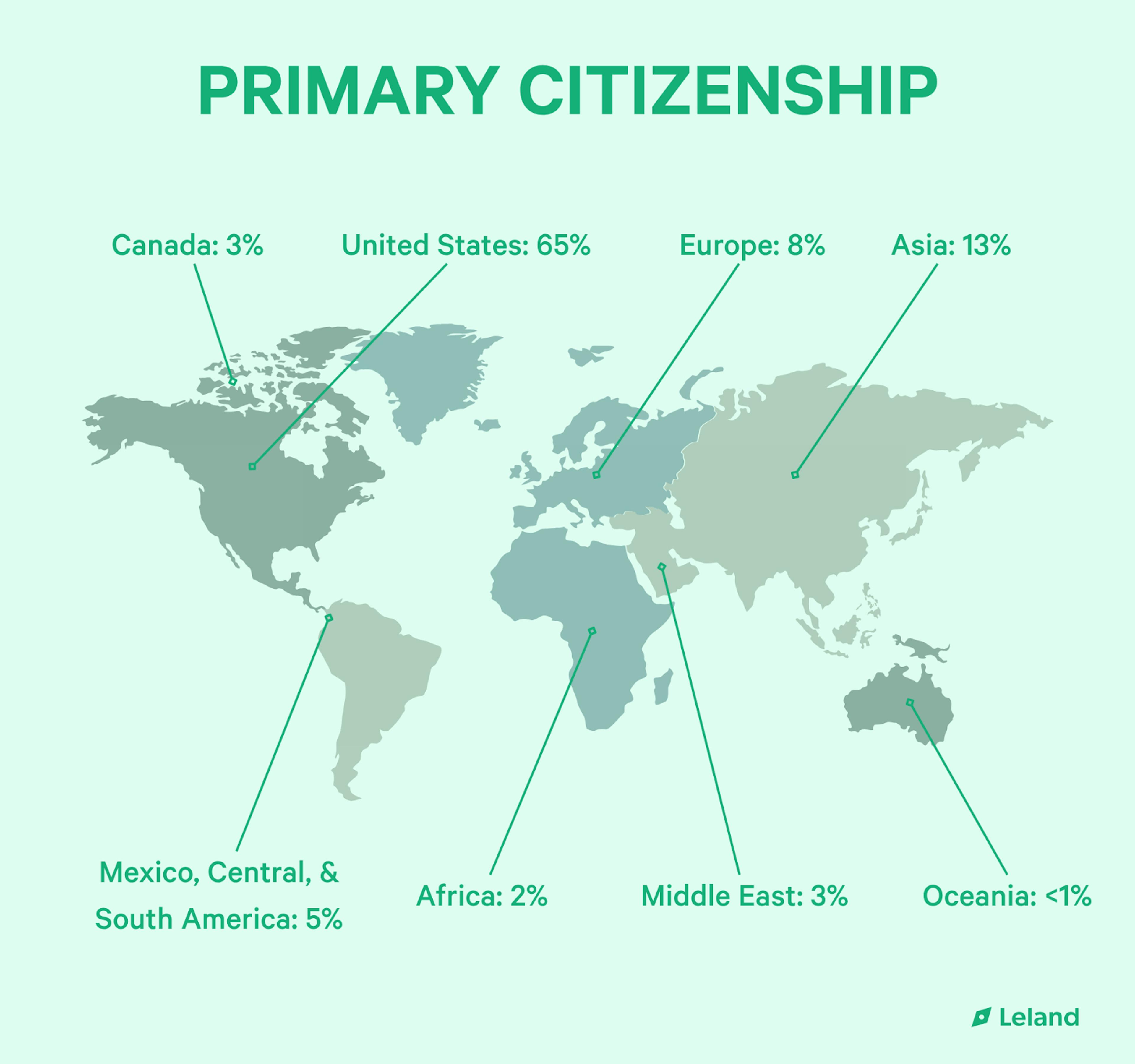
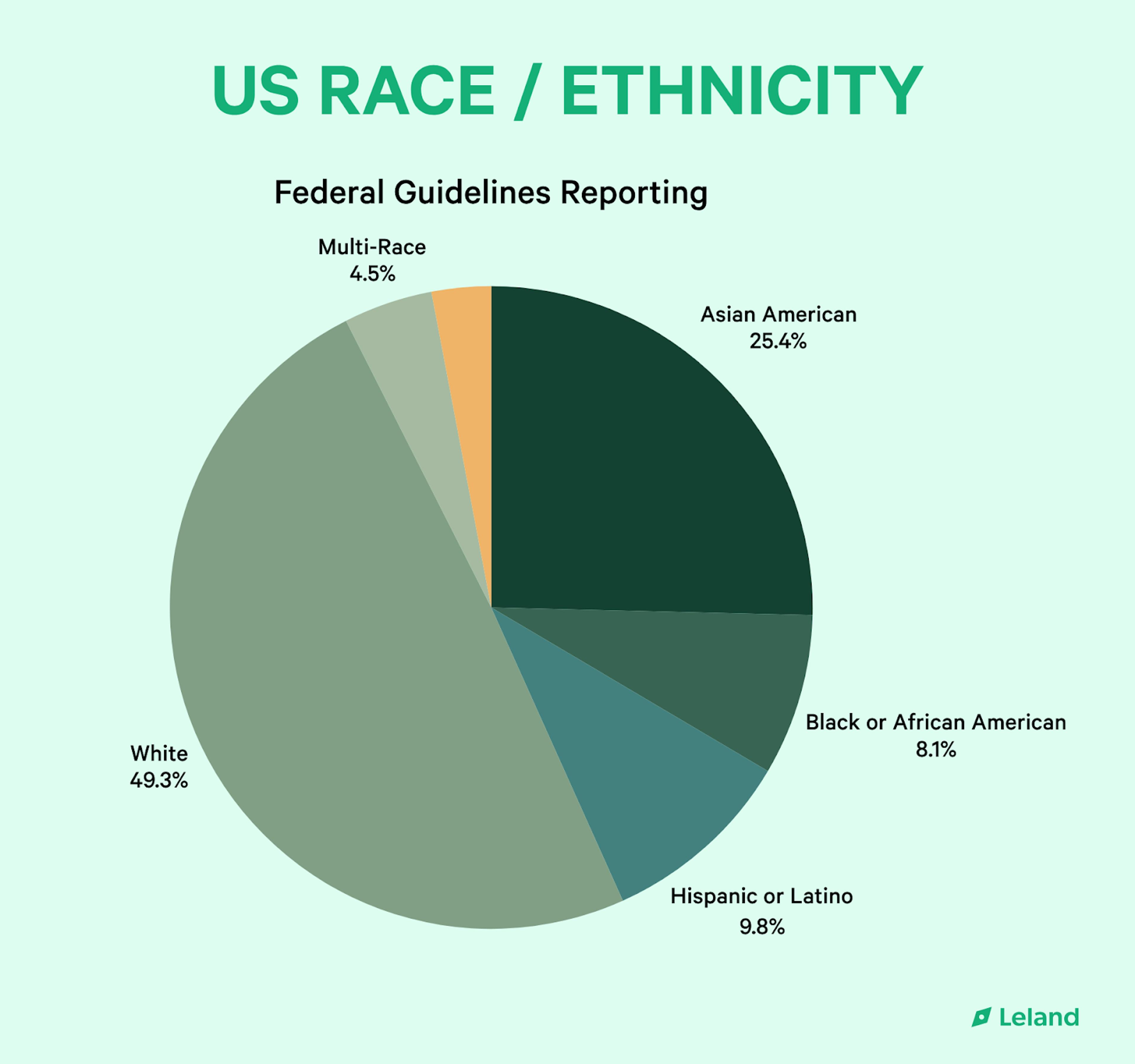
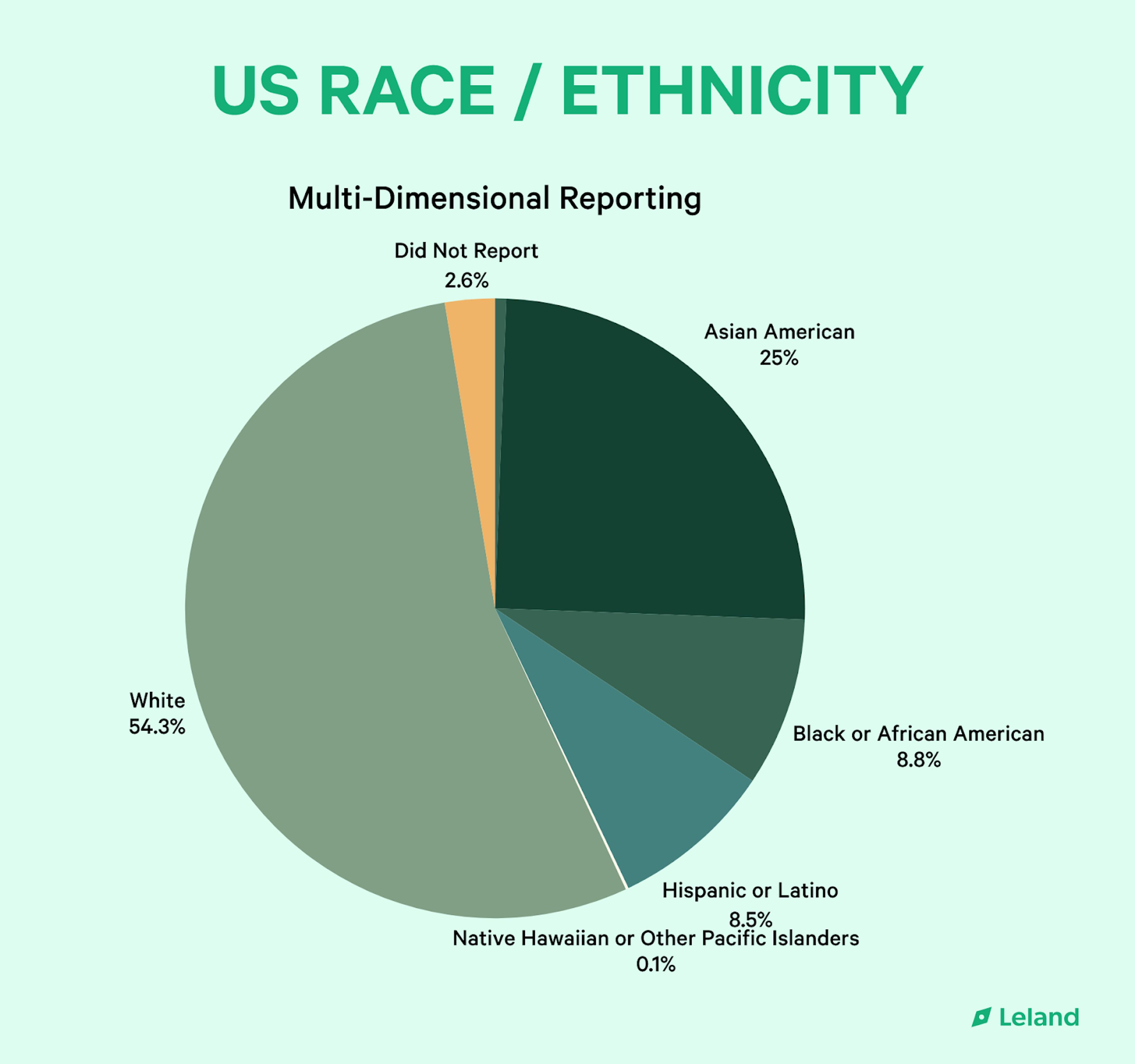
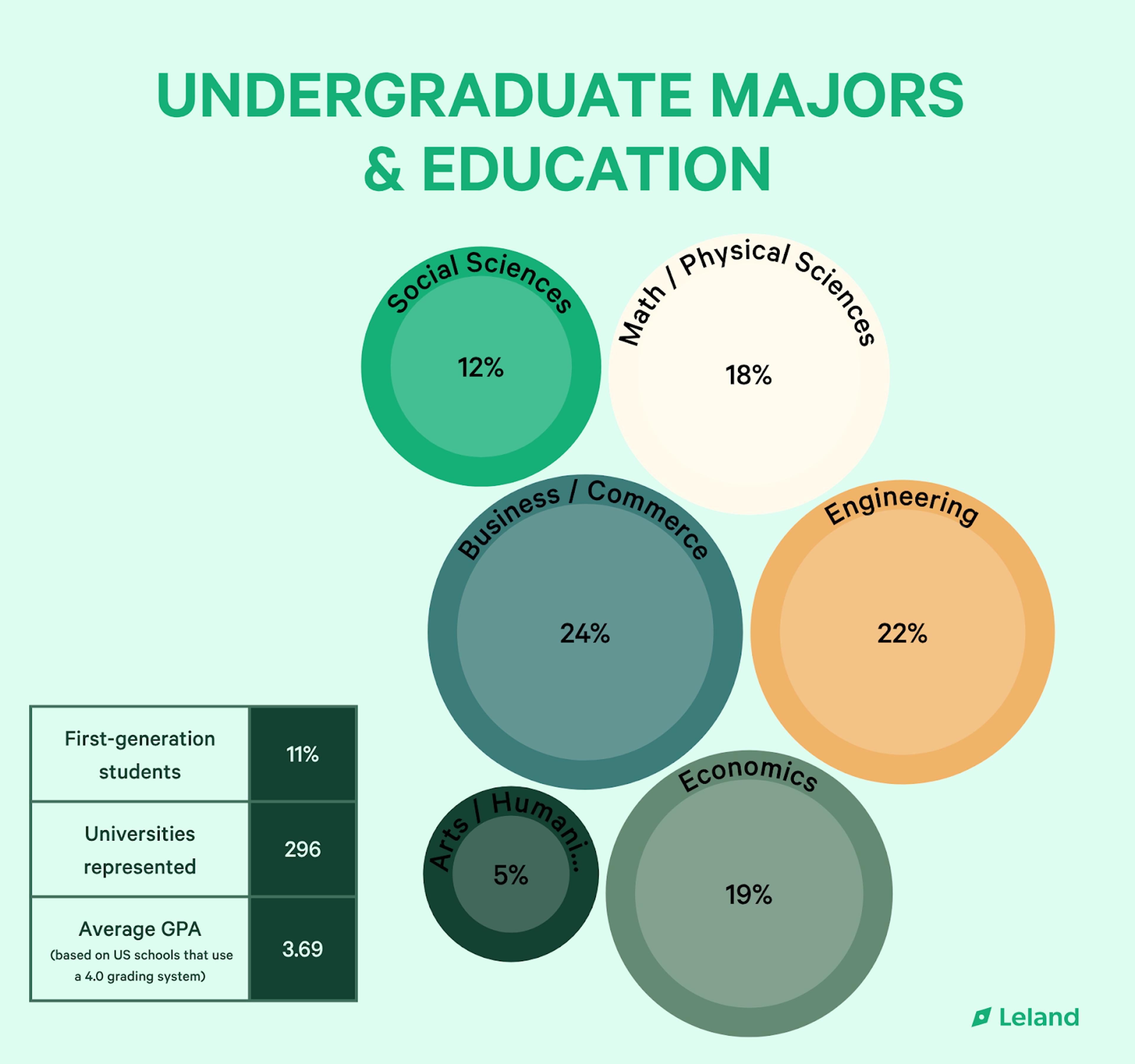
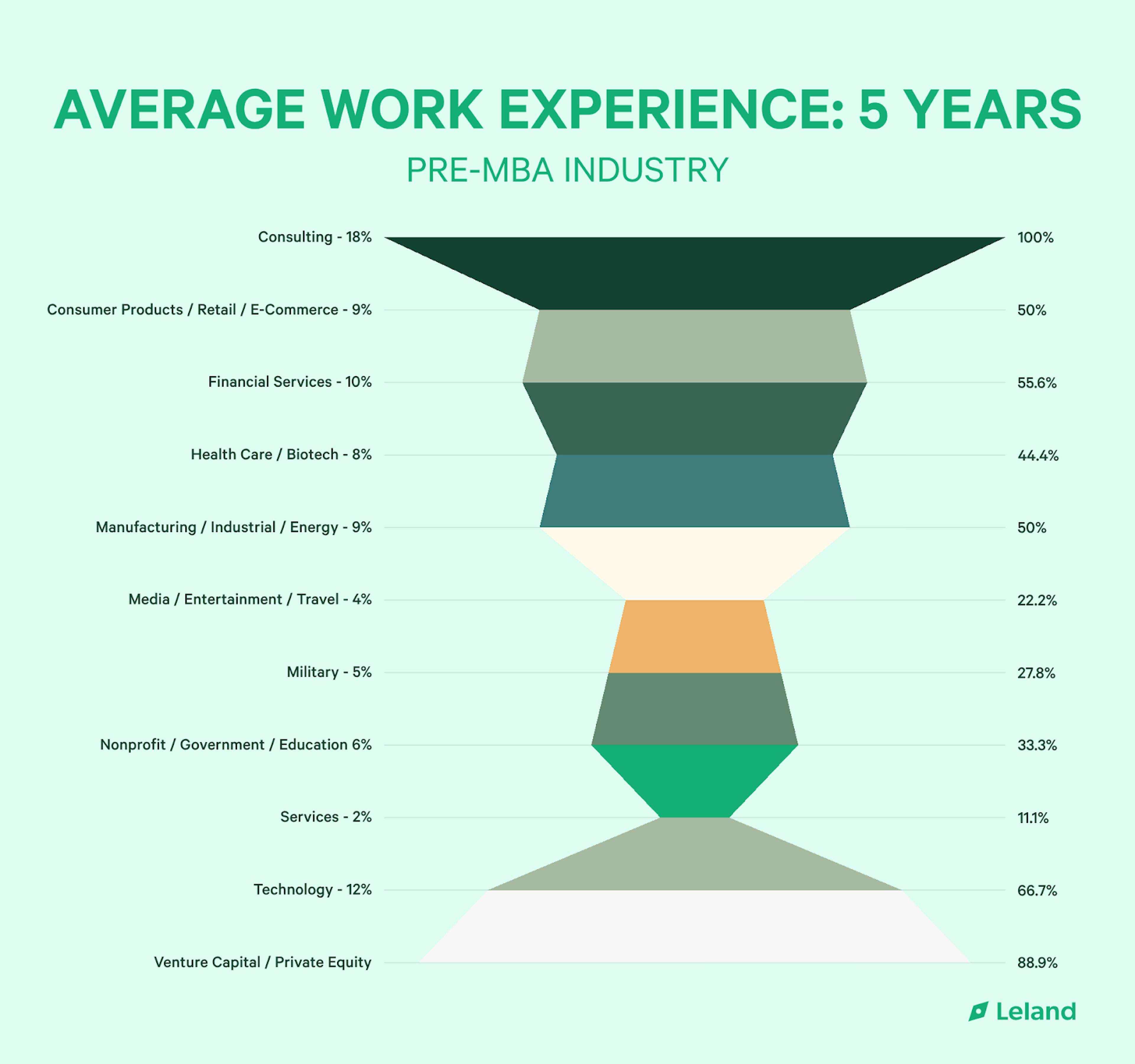
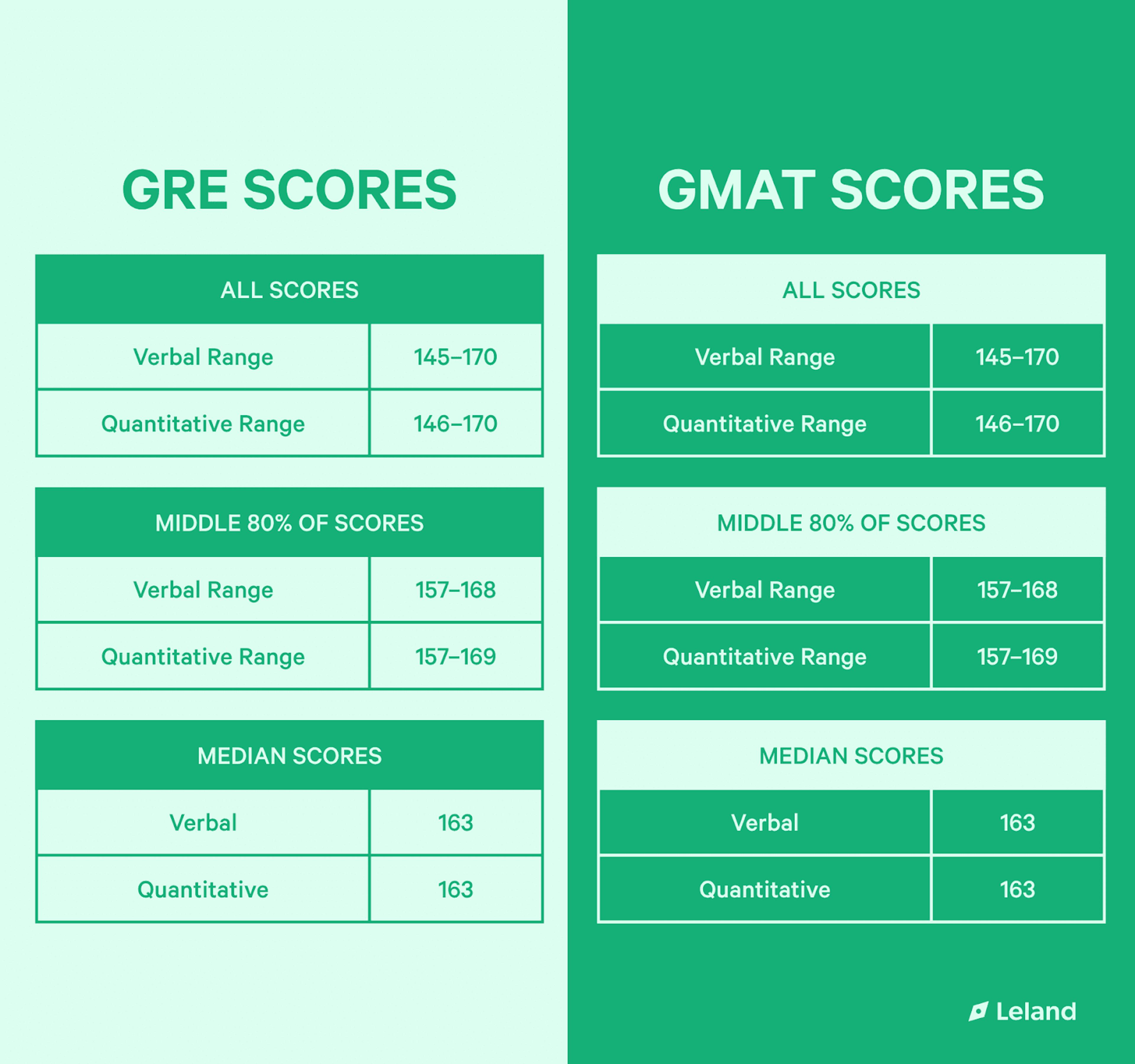
There is no minimum GMAT or GRE requirement for applying, and Harvard does not favor one test over the other. For the Class of 2026, 63% of applicants submitted GMAT scores, while 41% submitted GRE scores, with some students submitting results from both tests. The GMAT Focus is also accepted, and data from this test will be included starting with the Class of 2027.
Note: This profile highlights that while admitted students must excel academically, the program also values diversity in educational background and early professional experience.
How to Strengthen Your Application
Success in the HBS 2+2 program depends on both academic results and how you present your potential. A strong GPA in your undergraduate studies, competitive test scores, and clear intellectual drive form the foundation. Building specialized knowledge in research or technically demanding areas also shows depth.
Equally important is showing demonstrated leadership. Whether through campus groups, nonprofit projects, or early internships, your impact matters. Linking these experiences to your long-term post-MBA career makes your application stronger.
Your essays should connect your professional experience, personal background, and future vision. If you are interested in joint paths, highlight your interest in law school, medical school, or other graduate degree programs. Recommendations from a supervisor or professor who knows your work and leadership potential will reinforce your story.
Read: Harvard MBA Interview Guide — From an Ex-HBS AdCom
Comparing HBS 2+2 with Other Deferred MBA Programs
Other top business schools offer deferred MBA options.
| School | Program | Deferral Period | Notes |
|---|---|---|---|
| Harvard Business School | HBS 2+2 | 2–4 years | One deadline per year |
| Stanford GSB | Deferred MBA | 2–4 years | Similar structure |
| Wharton MBA | Advance Access | 2–4 years | Larger applicant pool |
| Columbia Business School | Deferred Enrollment | 2–5 years | Longer flexibility |
While each deferred MBA program has unique features, HBS 2+2 remains the most selective due to its global reputation and the size of its committed student pool.
Life During the Deferral Period
After admission, you will spend two to four years working full-time before starting the HBS MBA program. This deferral period allows you to gain meaningful experience and prepare for your future post-MBA career.
Many deferred students enter fields like software development, scientific research, or medical functions, while others join operating companies, consulting firms, or leadership roles in the nonprofit sector. Companies engage with deferred applicants by offering positions that develop leadership and prepare them for graduate-level learning. The deferral period is not a pause; it shapes your professional perspective and helps you contribute more effectively once you begin the MBA program.
5 Expert Tips to Strengthen Your HBS 2+2 Application
1. Apply Early to Secure Your Spot at HBS
If you are still in school, applying for the HBS 2+2 program is a great way to lock in your future without waiting for years of professional experience. This program allows you to gain real-world experience for two to four years before entering the MBA program. It is an excellent opportunity for those finishing their bachelor's degree program or completing a master’s, and especially for international applicants who want to start planning their MBA journey early. It’s your chance to ensure a spot at Harvard Business School before you even start your career.
2. Showcase Your Leadership and Analytical Skills
Focus on demonstrating your leadership potential. Whether through internships, campus involvement, or early work experiences, showing that you’ve taken the initiative will strengthen your MBA application. Admissions committees at business schools like Harvard Business School want to see not just good grades but evidence of intellectual curiosity and leadership. For current students, this is your chance to stand out with examples of how you’ve made an impact, even before entering the workforce full-time.
3. Tailor Your Application to Highlight Career Alignment
One of the best ways to improve your chances is by making a clear connection between your undergraduate studies, professional experiences, and your post-MBA career goals. If you're passionate about a specific field, whether it’s consulting, technology, or nonprofit work, be sure to highlight how your experiences are shaping your long-term career. International students, especially, should emphasize their unique perspectives and how their background will contribute to the HBS community.
4. Understand the Admission Process and Requirements
Unlike traditional MBA admissions, this program gives you the chance to secure a spot early. That said, you must meet certain requirements, including no full-time work experience before applying. It is also important to understand the application timeline, including deadlines for submitting your test scores, recommendations, and transcripts. For international applicants attending college outside the U.S., understanding the complexities of the application process, like the possible need for TOEFL scores, is essential.
5. Research and Compare Deferred MBA Options
The program stands out as one of the most competitive deferred MBA options, but it’s not the only one. Schools like Stanford GSB, Wharton, and Columbia Business School also offer similar programs. Each has its own set of requirements, deadlines, and features, so do your research. Understanding the strengths of each program will help you make an informed decision about where you want to apply and how it aligns with your future goals.
The Bottom Line
The HBS 2+2 deferred MBA program is a rare opportunity to secure admission to Harvard Business School while still in school. If you are a college senior, graduate student, or deferred applicant, this is your chance to set your career path early. By focusing on academic backgrounds, demonstrated leadership, and professional experience during your deferral period, you can position yourself to succeed.
"“If you're going to convince the admissions committee that you want to do something after you graduate, you'd better have evidence that you have been interested in it before you got to Harvard or Stanford or wherever.” "
Avi L.
Ready to boost your chances of admission to HBS 2+2?
Work with our expert coaches to refine your application and secure your future today! With guidance from experts who understand Harvard’s admissions committee, you can improve your chances of joining the next group of admitted students at HBS.
Work with:
Yvette R. is an MBA admissions coach with 10+ years of experience, specializing in guiding candidates with unique AI-driven goals. As a first-generation college graduate, she was admitted to HBS, Wharton, Kellogg, and Tuck. She first experienced the MBA classroom through Harvard's SVMP and has since built an extensive network with top MBA programs. With a background at Deloitte, Fannie Mae, and UBS, she now helps clients refine their goals as a Technology Executive in San Francisco.
Geri T. She is an MBA admissions coach and advisor with firsthand experience as a former member of the MBA Admissions Board at Harvard Business School (HBS). Having reviewed thousands of applications and conducted hundreds of interviews, she brings deep knowledge of the admissions process. She also played a key role in launching and managing the HBS 2+2 Deferred Admit Program. As an independent coach, she has helped clients succeed at top schools, offering support with school selection, crafting a compelling story, essay and resume writing, recommender preparation, and interview prep. Rated "Leland Top 50 Coach" in 2023 and 2024, she’s here to help you achieve your MBA goals.
Helaman P. As an MBA candidate at Harvard Business School, he has expertise in business development, data analysis, and strategic consulting. With a 3.90 GPA from Brigham Young University, he’s successfully coached clients into HBS, GSB, and Wharton. He’s passionate about helping clients craft compelling applications that highlight their unique strengths and experiences.
Be prepared and read these next:
- A Guide to the HBS Essay
- How to Write a Powerful HBS Post-Interview Reflection
- 6 Expert Tips for Nailing Your Virtual MBA Interview
- Harvard Business School MBA: Acceptance Rate, Deadlines, Cost, Requirements, & Program Overview
- The Top 10 Deferred MBA Programs in the US -- and How to Get In
FAQs
How hard is it to get into HBS 2+2?
- It is very competitive, with an estimated admit rate of 8–10%, lower than the regular HBS MBA program.
What is the 2+2 program at HBS?
- It is Harvard Business School’s deferred MBA program, where college seniors and graduate students apply in their final year, work 2–4 years, then start the MBA.
How many people get into HBS 2+2?
- Each year, around 100–120 applicants are admitted from a much larger pool of MBA applicants worldwide.
What is the average GPA for Harvard 2+2?
- Admitted students typically have an average GPA of around 3.7, with strong academic backgrounds across disciplines.

Written by Claire
5.0
(90)
I know what it's like to feel like you don't belong. Growing up in the suburbs of Chicago with a mixed-race/cultural family, I never thought that I'd have the chance to be a part of incredible institutions like Dartmouth, Stanford GSB, and the Knight-Hennessy community. I was only able to get there because others invested in me - and now I want to do my part to give back. Before I got to college, I didn't know anybody who went into consulting (or even what McKinsey, Bain, or the Boston Consulting Group were.) My jobs going into college included working as a Starbucks barista and selling equipment at an outdoor goods store. I threw myself into mastering the case interview process and was lucky enough to earn a full-time role at Bain & Company. I then entered the private equity and venture capital industries and have been able to transform the trajectory of my life as well as my family's. My journey has been special, but not because I am. It's because I received mentorship, coaching, and advice from others who believed in me. Now, I'm on Leland to be that person for you. Looking forward to talking about how we can help you pursue your dreams on an intro call soon!
Claire has helped clients get into organizations like:













